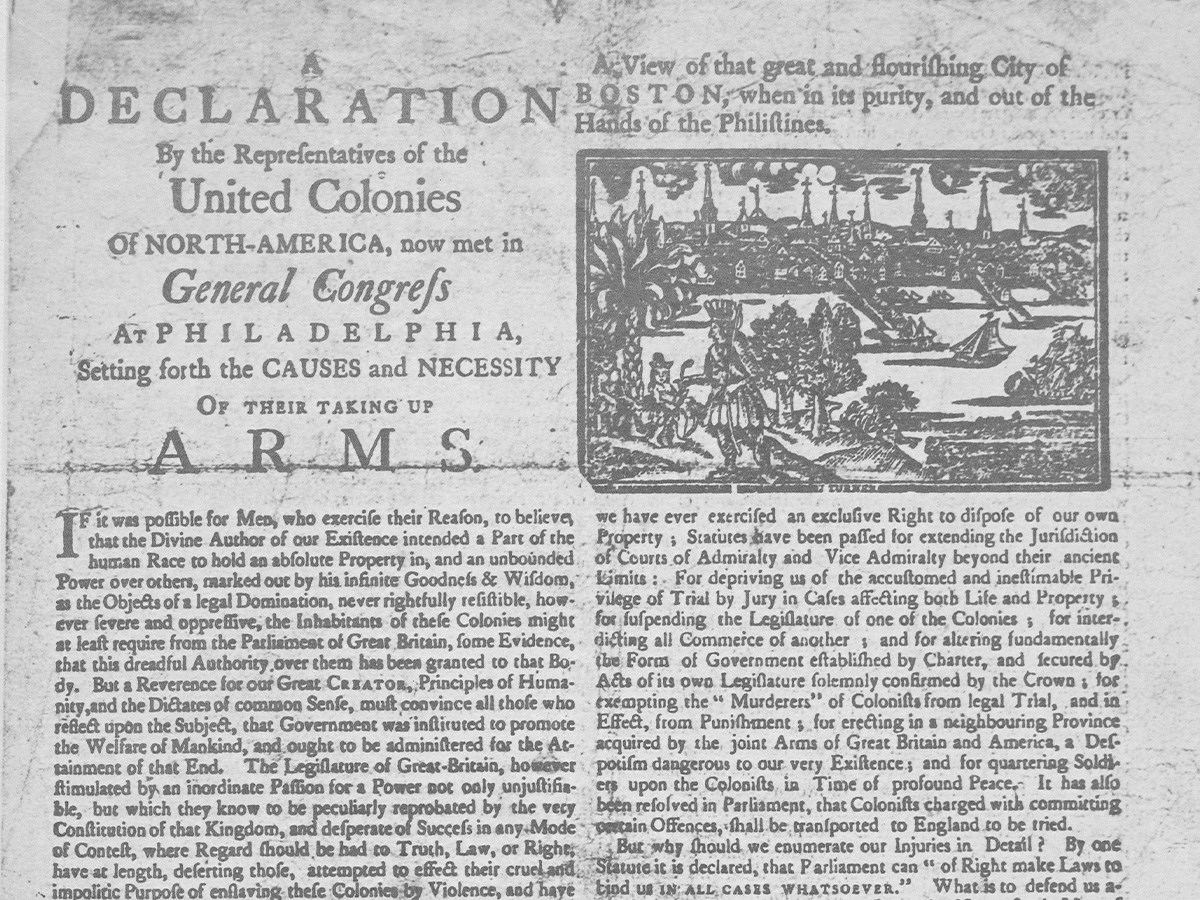Last updated: April 18, 2025
Article
The Declaration of the Causes of and Necessity of Taking up Arms


The Miriam and Ira D. Wallach Division of Art, Prints and Photographs: Print Collection, The New York Public Library. "Plate II. A view of the town of Concord" New York Public Library Digital Collections.
Shots Fired
In the summer of 1775, tensions were high. British soldiers patrolled the streets of Boston. Distrust and resentment grew among the colonists. In an effort to secure the countryside surrounding Boston, British troops marched towards Concord and armed conflict ensued. As the smoke cleared from the battles of Lexington and Concord, the relationship between the American colonists and Great Britain was forever changed.
NPS image
A Response from Philadelphia
News of the bloodshed quickly spread through the American colonies. The Second Continental Congress convened in Philadelphia—action was needed. In the Assembly Room of Independence Hall, delegates engaged in intense discussions about the colonies' rights and the need for a unified response to British aggression. John Dickinson and Thomas Jefferson, along with other delegates, played a significant role in shaping the declaration. They worked collaboratively to articulate their grievances and justify their decision to take up arms.The drafting process was marked by passionate debates. The delegates sought to balance their desire for independence with the hope of reconciliation with Great Britain. Ultimately, they concluded that the British government left them no choice but to defend their liberties through armed resistance.
parliament can "of right make laws to bind us in all cases whatsoever." What is to defend us against so enormous, so unlimited a power? Not a single man of those who assume it, is chosen by us."
Reasons for Armed Resistance
The declaration emphasized the colonies' desire for self-government and their frustration with perceived British oppression. It outlined several key grievances, including:- Taxation without Representation: Colonists were frustrated by taxes imposed by the British Parliament without their consent.
- Military Aggression: The presence of British troops in the colonies was seen as a threat to their liberties.
- Violation of Rights: The declaration argued that the British government had violated the natural rights of the colonists.
the arms we have been compelled by our enemies to assume, we will, in defiance of every hazard, with unabating firmness and perseverence, employ for the preservation of our liberties
Impact on the American Revolution
The Declaration of the Causes of and Necessity of Taking up Arms played a significant role in uniting the colonies. It fostered a sense of shared purpose and commitment to the cause of fighting for their natural rights. By articulating their grievances clearly, the colonists rallied support for their defense against perceived British tyranny.The work done in Independence Hall during this time laid the foundation for future documents, including the Declaration of Independence in 1776. The principles established in the document resonated throughout the Revolutionary War.
